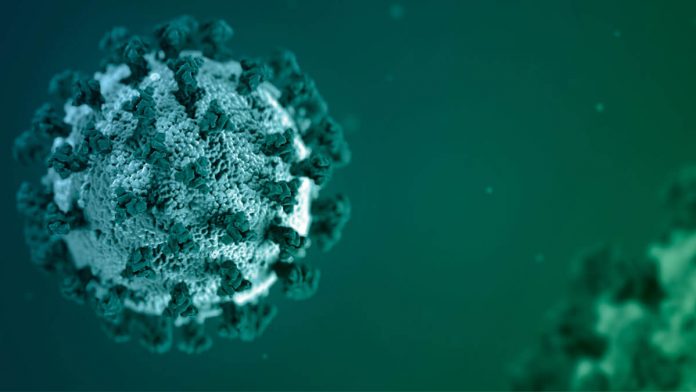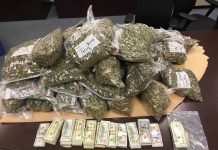This article is written by Vanya Verma from O.P. Jindal Global University. This article focuses on the laws related to hand sanitisers.
Table of Contents
Introduction
Hand sanitizers have acquired significance in the aftermath of COVID-19, particularly as a result of the WHO’s demand, and can now be found in every area and corner of the world, from the largest metropolis to the tiniest hamlet, hand sanitiser has had such an impact.
To avoid the spread of COVID-19, the World Health Organization and governments around the world have frequently urged the use of hand sanitiser. Hand Sanitizer is a cleansing agent, hand antiseptic, hand rub, or agent used on the hands for the goal of eliminating common germs. It’s a straightforward method of infection prevention. Ethanol and hydrogen peroxide are the major chemicals, according to the label. Alcohol-based hand sanitisers often include between 60 and 95 per cent alcohol, typically in the form of ethanol, isopropanol, or n-propanol.
Guidelines by WHO for composition of sanitisers
The WHO suggested a specific composition of sanitisers to protect the general public’s interests and maintain the quality of sanitisers on the market. Hand sanitisers with the best antibacterial activity often comprise 75 to 85 per cent ethyl alcohol/ethanol, isopropanol, or a mix of these products, which is appropriate to India. As a result, the WHO-recommended formulations contain either 75 per cent v/v isopropanol or 80 per cent v/v ethanol.
In India
The importance of hand sanitiser may be seen in the fact that it has been included in the Essential Commodities Act, 1955 by the Ministry of Consumer Affairs, Food and Public Distribution here to ensure that it is readily available around the clock.
Before COVID-19, hand sanitiser was only used by a few people. It was developed, promoted, and sold by a small number of enterprises and multinationals, because of the enormous impact of hand sanitiser, the government was forced to interfere and set a price cap.
Interestingly, the Maharashtra government sent a letter through the Food and Drug Administration on 29 May 2020 stating that only a legitimate licence holder under the Drugs and Cosmetics Act, 1940 and its Rules can distribute and sell the hand sanitiser. The government’s response appears to be in response to a question from a major manufacturer about whether they (as a manufacturer with a licence) may sell these items to small Kirana shop owners (clearly without a licence) who will ensure that hand sanitiser reaches the last mile.
Legislation for hand sanitiser
Unless a drug is exempted, the Drugs and Cosmetics Act, 1940, and the Drugs and Cosmetics Rules, 1945, require that every drug made, stocked, sold, or exhibited in India be done so under a licence. The Drugs and Cosmetics Act of 1940 was enacted to govern the importation, manufacturing, distribution, and sale of drugs and cosmetics. The term ‘drug’ is defined in Section 3(b), which includes four sub-clauses. Sub-clause (1) refers to medicines while sub-clauses (ii) and (iii) refer to substances and sub-clause (iv) refers to devices. As a result, one could get to the conclusion that a ‘drug’ would include not only medicines but other chemicals and things as well.
As a result, the obvious question is whether hand sanitiser falls within the definition of a drug as defined in Section 3(b). In Chimanlal Jagjivan Das Sheth v. State of Maharashtra (1963), Supreme Court determined that a ‘substance’ as defined by Section 3(b) of the Drugs and Cosmetics Act, is not limited to those that can be classified as “medicine,” and that a substance can also be a “thing” that can be used for any treatment. Using this logic, a hand sanitiser would categorically fall under the definition of a drug as a substance.
Sale of hand sanitiser
Section 18(c) of the Drugs and Cosmetics Act of 1940 makes it very clear that a licence is required for “manufacture for sale, distribution, sale of stock, or exhibit of an offer, for sale of any medication.”
Part VI – Rules 59 to 66A and Part VII – Rules 71 to 84B of the Drugs and Cosmetics Rules 1945 must also be read in conjunction with this Section. A review of these requirements reveals that not only the maker, but also those who stock, show, sell, or distribute must have the necessary licence.
Part XI of the Drugs and Cosmetics Rules 1945, Rule 123 talks about exemptions. To the extent and subject to the restrictions described in that schedule, the medications listed in Schedule ‘K’ are exempted from the provisions of Chapter IV of the Act and the rules adopted thereunder. This would mean that all pharmaceuticals listed in Schedule ‘K’ are excluded from the provisions of Chapter IV of the Act and its Rules to the extent and subject to the criteria outlined in that schedule. Schedule K contains 35 goods that are exempt from the Drugs and Cosmetics Act’s Chapter IV.
Item 12 of the Rule provides that insecticides and disinfectants are substances intended for use in the elimination of vermin or insects that cause disease in humans or animals. Item 12 resembles the wordings of Section 3(b) (ii) of the Drugs and Cosmetics Act 1940. As a result, the legislature’s purpose appears to be that those substances defined under 3(b)(ii) that expressly fall within item 12 of Schedule K are exempted from the Act’s restrictions to the degree permitted.
Licences for manufacture, distribution and sale of sanitisers
Because sanitisers are classified as “drugs” under the Drugs and Cosmetics Act of 1940, a licence to sell, manufacture, or distribute them must be obtained from the Licensing Authority as prescribed by the government in the Drugs and Cosmetic Rules of 1945.
The application for the sale, stock, exhibit, or offer for sale must be made using the 1945 Rules designated applicable Form. The licensee must submit the relevant information and adhere to the terms and conditions of the licence.
The application for manufacturing must be submitted following the prescribed form under 1945 Rules, along with all relevant papers, including but not limited to a plan of premises. The licence must also adhere to the license’s terms and conditions. Entrepreneurs who do not have their manufacturing facilities might apply for a loan licence to manufacture the drug for sale. They would have to present a consent document from the location where the manufacturing is taking place.
Licencing, approval, and renewal of sanitisers by the Ministry of AYUSH
In light of the pressing need for sanitisers during the COVID 19 epidemic, the Ministry of AYUSH issued a circular on April 02, 2020, to speed up the process for approving /renewal of licence for manufacturing sanitisers. In this regard, the government has urged the AYUSH Licensing Authorities to finish the licensing/approval/renewal process as quickly as possible. However, the licensing/approval/renewal must comply with the components’ and excipients’ terms of use, i.e. ingredients of the medication.
Licence for sale and stocking of sanitisers
The Union Health Ministry has exempted hand sanitisers from the requirement of a selling licence for stocking or sale under the Drugs and Cosmetics Act, 1940, and the Drugs and Cosmetics Rules, 1945, in the wake of the COVID-19 pandemic.
Several requests were submitted to the government, according to the official notification, to exempt hand sanitisers from the requirement of a sale licence under the Drugs and Cosmetics Act.
The gazette notification read, “The central government is satisfied that hand sanitisers are required to fulfil the requirements of an emergency arising from the COVID-19 epidemic, and their simple availability is made in the public interest.”
Even though hand sanitisers are free from the requirement of a selling licence, some conditions must be completed by a seller before the drug’s expiration to comply with medications and cosmetics regulations.
The government notification stated, “The central government hereby directs that the drug, namely, hand sanitiser, be exempted from the requirement of a sale licence for its stocking or sale under the provisions of Chapter IV of the Drugs and Cosmetics Act, 1940 and the Drugs and Cosmetics Rules, 1945, subject to the condition that the provisions of condition (17) of Rule 65 of the said Rules are complied with by the person stocking or selling hand sanitisers.”
In the United States
The Food and Drug Administration (FDA) plays a crucial role in protecting the United States from infectious diseases like the coronavirus. The FDA is dedicated to providing timely guidance to help with the pandemic’s continuity and response activities. During the COVID-19 public health emergency, FDA undertook additional action to help fulfil the increased demand for hand sanitisers.
- Entities that were not registered medication manufacturers could register as over-the-counter (OTC) medicine manufacturers and make alcohol-based hand sanitisers during the COVID-19 public health emergency.
- Certain alcohol-based hand sanitisers can be compounded by pharmacies and registered outsourcing facilities.
- Alcohol production enterprises can generate alcohol for use in hand sanitisers if they follow the FDA’s industry guidance.
The FDA planned to withdraw three guidance documents released in March 2020 that outlined temporary procedures for manufacturers who were not drug makers before the public health emergency to produce certain alcohol-based hand sanitisers and alcohol for use in hand sanitisers. Under the temporary restrictions, companies that manufacture alcohol-based hand sanitisers must stop making them by December 31, 2021. Manufacturers can no longer sell or distribute hand sanitisers made before or on December 31, 2021, and produced under the temporary guidelines after March 31, 2022.
Manufacturers that want to keep making hand sanitiser beyond that date can do so as long as they follow the preliminary final monograph for over-the-counter topical antiseptics and other applicable regulations, such as the FDA’s Current Good Manufacturing Practice (CGMP) Regulations. Deregistration information can be found on the Electronic Drug Registration and Listing Instructions website for manufacturers who no longer plan to produce these products.
Due to the dangers of methanol or 1-propanol contamination, including death, the FDA is recommending importers, consignees, distributors, retailers, and others not to distribute or sell certain hand sanitisers, even if the maker has not issued a recall. The agency maintains a list of harmful hand sanitisers and suggests that companies involved in the distribution and sale of hand sanitisers review this list frequently because it is updated regularly. All of the hand sanitisers on the list are considered adulterated by the FDA, and it is illegal to distribute or sell them across states.
Advice to consumers by FDA
The FDA is advising consumers and health care professionals that hand sanitiser products branded as containing ethanol (commonly known as ethyl alcohol) but have tested positive for methanol, 1-propanol, or other impurities have increased dramatically. Methanol, often known as wood alcohol, is a poisonous chemical that can be life-threatening if consumed or absorbed via the skin. The FDA also warned consumers and healthcare professionals about hand sanitisers packed in water bottle-like containers or those that are sub potent, meaning they contain less than the appropriate amount of ethyl alcohol, isopropyl alcohol, or benzalkonium chloride.
Consumers should examine hand sanitiser items in their homes and before purchase see if they are on this list of methanol-contaminated hand sanitisers. More information on methanol or 1-propanol contamination in certain hand sanitisers, as well as other safety risks with certain hand sanitisers, can be found at FDA updates on hand sanitisers consumers should not use.
Consumers are advised not to use certain hand sanitisers by the FDA. The information on hand sanitiser labels for consumers to identify a product that:
- FDA tested and found that it contains methanol, 1-propanol, benzene, acetaldehyde, or acetal.
- Methanol is listed on the label.
- Has been tested and proven to contain microbial contamination.
- Recalled by distributor or manufacturer.
- Is sub potent, which means it contains less ethyl alcohol, isopropyl alcohol, or benzalkonium chloride than is required.
- Is allegedly manufactured at the same facility as items that have been found to include methanol, 1-propanol, benzene, acetaldehyde, or acetaldehyde.
- Is packaged in a container that looks like a food/beverage container, posing a higher risk of accidental ingestion.
Hand hygiene is a critical component of the United States’ response to COVID-19. Hands should be washed often with soap and water for at least 20 seconds, especially after using the restroom, eating, and coughing, sneezing or blowing one’s nose. The Centers for Disease Control and Prevention (CDC) recommends using an alcohol-based hand sanitiser that contains at least 60% alcohol if soap and water are not readily available (also referred to as ethanol or ethyl alcohol).
Hand sanitisers should be kept out of the reach of minors, and in the event of ingestion, seek medical attention or contact a Poison Control Center External Link Disclaimer right away. Hand sanitiser in little doses can be harmful, even fatal, to young children.
Conclusion
Hand sanitisers had become essential during the time COVID-19 and in order to avoid any complications or irregularity laws were needed to regulate the distribution, supply and composition.
References
- https://www.who.int/gpsc/5may/Guide_to_Local_Production.pdf
- https://arogyalegal.com/2020/article/alcohol-based-hand-rubs-and-sanitizers-regulatory-requirements-uncertainties-and-important-considerations-for-doing-businesses-in-india/
- https://www.livemint.com/news/india/government-exempts-hand-sanitisers-from-licence-for-sale-stocking-11595953488216.html
- https://www.mondaq.com/india/food-and-drugs-law/960464/hand-sanitizer-and-the-law
- https://www.business-standard.com/article/economy-policy/centre-exempts-hand-santisers-from-requiring-sale-licence-due-to-covid-19-120072900282_1.html
- https://www.fda.gov/drugs/coronavirus-covid-19-drugs/hand-sanitizers-covid-19
- https://www.ayush.gov.in/docs/124.pdf
- https://iclg.com/briefing/13313-sanitizer-business-and-its-regulatory-framework-amidst-covid-19
LawSikho has created a telegram group for exchanging legal knowledge, referrals, and various opportunities. You can click on this link and join:
https://t.me/joinchat/J_0YrBa4IBSHdpuTfQO_sA
Follow us on Instagram and subscribe to our YouTube channel for more amazing legal content.
 Serato DJ Crack 2025Serato DJ PRO Crack
Serato DJ Crack 2025Serato DJ PRO Crack











 Allow notifications
Allow notifications


